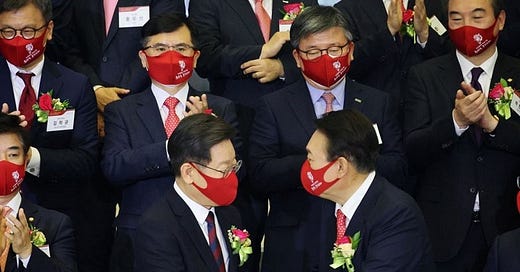Ukraine Triggers Korea Election Security Debate
North’s missile provocations take on a whole new cast
By: Shim Jae Hoon
Russia’s aggression in Ukraine and China’s menacing posture on Taiwan is prompting national security jitters in South Korea as voters go to the polls on March 9 to elect a successor to President Moon Jae-in, whose term ends in May.
The spectacle of nuclear Leviathan Russia mercilessly pounding a small, hapless next-door neighbor has stun…
Keep reading with a 7-day free trial
Subscribe to Asia Sentinel to keep reading this post and get 7 days of free access to the full post archives.



